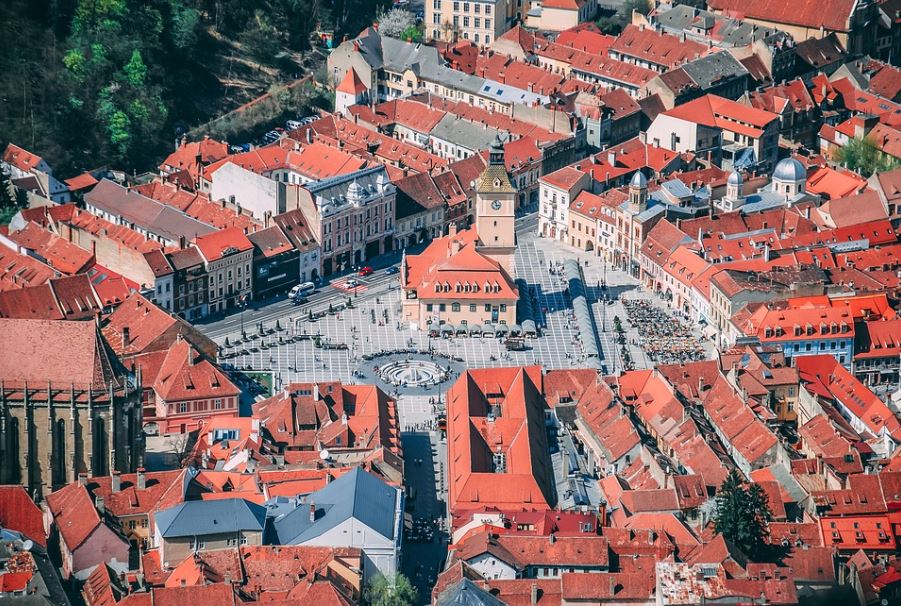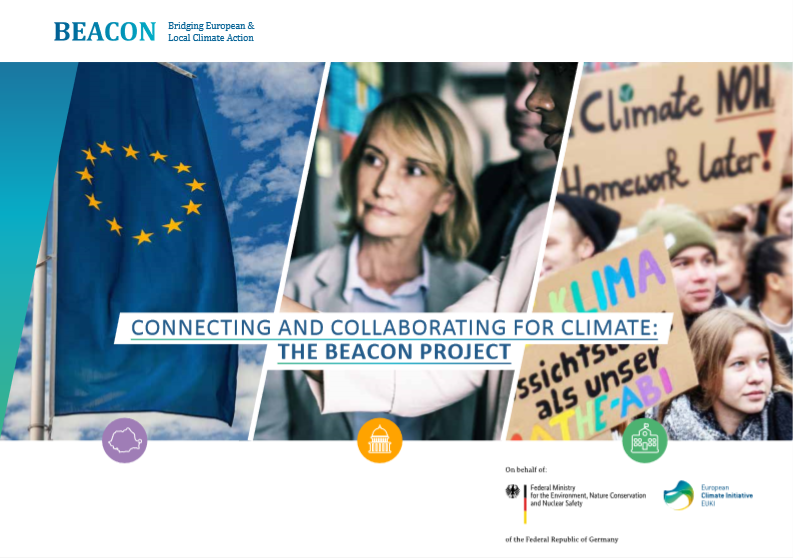Interview: Networking and Support in Times of Social Distancing
by Samuel Held and Julia Unverzagt, GIZ/EUKI
The EUKI project Accelerating climate action buildings– Strengthening civil society and policy makers in Romania and Bulgaria aims to enable stakeholders from municipalities and civil society to integrate building renovation strategies in local and national Energy and Climate Plans. We spoke to Leea Mihaila, PR and Communication Officer at the implementing organisation Romanian Network of Energy Cities (OER), which is also part of the BEACON network. The current pandemic is largely influencing OER’s everyday work but Leea also emphasizes the hidden potential the crisis could hold to rethink society for a healthier future.

Leea, how does the current crisis affect the work in your EUKI projects?
Our entire community is going through unthinkable times, but we are attempting to take the best decisions for continuing our projects, missions and plans. We need to adapt to a whole new lifestyle without affecting our productivity, milestones or aims. We believe it is essential to accept things as they are in order to thrive. Therefore, the necessary changes of plans were never considered forced measures, but rather readjustments.

What kind of measures do you take in order to keep up the cooperation with your partners right now? How can existing networks and exchange formats persist?
We’ve been proactive all along, taking the current situation seriously, stepping online with every task, meeting or decision process. We work with municipalities who have a lot to deal with at the moment, so what we constantly do is tailor our support to their needs and reinforce the network we are all part of. Even if in isolation, we can still do more together, thus our community and the exchanging activities are our best value
More about Accelerating Climate Action Buildings and BEACON

We’ve been proactive all along, taking the current situation seriously, stepping online with every task, meeting or decision process.
Leea Mihaila, Romanian Network of Energy Cities (OER)
What potential does digitalization hold to foster climate action – not only in crises but in general?
The digitalization of formats is a great alternative. One we have merely used before, but which is fully proving its potential now. It’s true that physical contact instead of social distancing, or live events instead of online gatherings can inspire ideas, thoughts and brainstorming. But given the current crisis and the need we already felt before to slow down, to travel less, to protect the climate, can only push us all to get the best of digitalization.
Do you think the current crisis is only a threat to climate action or can it also hold the potential to boost it?
The current times are a perfect opportunity to reconsider all our assets: from local resources to the quality of air, from energy management to controling our CO2 emissions, from urban infrastructure to sustainable mobility, from the quality of life to the quality of health systems and from the energy transition to the climate neutrality we all hope for. This is the time to assume bold decisions for a healthier future, a healthier environment and a healthier society.
The current times are a perfect opportunity to reconsider all our assets.
Leea Mihaila, Romanian Network of Energy Cities (OER)
In your opinion, is there anything the EU could do to bring the climate topic back on the agenda, even in the light of threatened economies?
We, at OER, think the EU can only help threatened economies by bringing the climate topic back on the agenda. Circular economy, local production of energy, renewable sources, recycling and reuse – these are sustainable resources a local community should use to get back on track. The EU could help creating the legal support to empower local authorities in the decision-making process, in managing local issues and in boosting local climate action.
